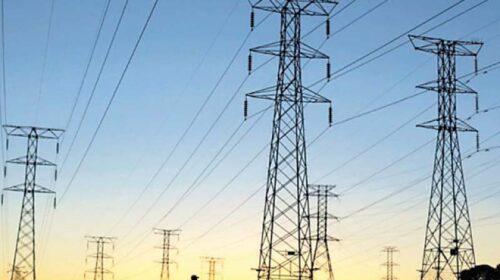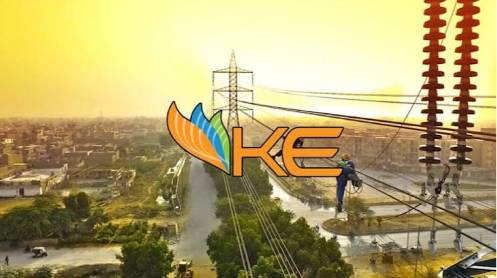With two major fuel suppliers in dire need of liquidity to the tune of Rs2 trillion in three months, the government has started passing on the increase in electricity tariff by an average Rs13 per unit in quick instalments to win over an urgently needed bailout package from the International Monetary Fund (IMF).
Highly placed sources told Dawn that power distribution companies (Discos) have already been communicated directives to withdraw with effect from June 8 a subsidy of about Rs5 per unit introduced by former premier Imran Khan on Feb 28.
This will become part of the current month’s consumer bills that will also include an additional fuel cost adjustment of Rs4 per unit.
This will be followed by two equal instalments of Rs3.50 per unit each. These will become effective in July and August billing cycles, followed by the remaining Rs1 per unit adjustment later. This will clear the power-sector conditions of the IMF and help revive its programme suspended since February last year.
The Economic Coordination Committee (ECC) of the cabinet, which met on Monday, approved the tariff rationalisation plan for the power sector as per determinations issued by the National Electric Power Regulatory Authority (Nepra) a few days back for increasing the base national power tariff by Rs7.91 per unit with an additional fiscal impact of Rs893 billion in 2022-23.
The meeting presided over by Finance Minister Miftah Ismail was requested by the Power Division to “pass on Rs7.91 per unit to consumers from July 1”. The targeted tariff differential subsidy (TDS) or cross-subsidy and tariff rationalisation for incorporation in the uniform national tariff was estimated at Rs184bn for Discos because the government has to protect consumers of the first 200 units per month. The Power Division also requested the application of the same rate to K-Electric Ltd to “maintain uniform tariff across the country”.
As an alternative, the Power Division suggested an increase of Rs6.25 per unit from July 1 and the remaining Rs1.66 per unit from October 1. But this was to result in the TDS of Rs231bn for Discos. The ECC, however, decided in line with the requirement of the IMF programme to increase the tariff by Rs3.50 per unit from July, followed by another Rs3.50 a unit hike in August and Rs1 a unit rise on October 1 — an increase applicable to KE as well. Top sources said this plan will immediately be cleared by the federal cabinet on Tuesday.
An official statement said that on a Power Division’s summary on tariff rationalisation, the ECC “approved the annual rebasing plan with certain modifications”. The ECC also directed the Power Division to recommend a subsidy reform adjustment for unprotected consumers, which was approved in December 2021 but not implemented.
Informed sources said the ECC was informed that the two major fuel suppliers – Pakistan State Oil Ltd (PSO) and Pakistan LNG Ltd (PLL) – had a gross liquidity requirement of about Rs1.97tr for the four months ending on Sept 30 to ensure 12 cargos of LNG a month and meet furnace oil requirements for the power sector. This included the requirement of Rs1.7tr of PSO for both furnace oil and LNG and Rs278bn of PLL for LNG to ensure about 800mmcfd supplies to Discos for power generation and 130mmcfd for K-Electric Ltd. The liquidity requirement surged because of record oil and LNG prices in the international market as a result of the Russian-Ukraine war and demand-supply constraints.
The meeting was informed that based on all other financial arrangements, there will still be an average shortfall of Rs52bn per month from June through September. But the additional requirement for June was Rs36bn and was urgently required, which leaves a requirement of Rs174bn for the first quarter of the next fiscal year.
The ECC approved Rs36bn in favour of the Petroleum Division to maintain the sustainability of the LNG supply chain as well as the import of petroleum products. The allocated amount will be released to Sui Northern Gas Pipelines Ltd (SNGPL) against its pending claims in respect of the cost of RLNG, which was diverted to the domestic sector.
The ECC also approved a total of 18 supplementary grants worth Rs260.6bn. This also included Rs50bn for payments of Chinese coal power plants for the purchase of coal to meet fuel requirements in ongoing peak demand. The ECC, however, deferred another summary for the creation of a revolving fund for Chinese power producers committed under the China-Pakistan Economic Corridor, which was never set up and has resulted in the accumulation of Rs340bn in power purchase dues.
The ECC also approved the payment of a supplementary grant of Rs130bn to the four provinces for ways and means advances because of Rs115bn overspent by Khyber Pakhtunkhwa. The budgetary allocations on this account included Rs77bn to Punjab, Rs39bn to Sindh, Rs31.3bn to Khyber Pakhtunkhwa and Rs17bn to Balochistan.
The ECC approved the extension in the Prime Minister’s Relief Package-2020 up to June 30 on all five essential items and allowed Ghee to be sold on all Utility Stores Corporation (USC) outlets throughout the country at Rs300 per kilogram from June 9 irrespective of the higher market prices above Rs450 per kilogram. The ECC further approved the allocation of funds to the tune of Rs3.44bn to USC through the supplementary grant.
The summary of the Ministry of Aviation for the payment of sales tax for leased aircraft on the basis of instalments was also approved. It was informed that Pakistan International Airlines Corporation Ltd (PIACL) was inducting four A320 aircraft on the dry-lease basis for 72 months. Due to financial constraints, PIACL was not in a position to pay general sales tax on the total rental value in lump sum. The ECC, after considering the upcoming Hajj and financial constraints of PIACL, approved the payment of the sales tax at 17pc ie Rs1.59bn on the total rental value of Rs9.38bn of the four aircraft on monthly instalments over the lease term starting from the date of the arrival of aircraft.
The Ministry of Communications presented a summary on the requirement of additional funds for the construction of Gilgit-Shandoor road, N-140. About Rs2bn was allocated in the federal budget of the outgoing fiscal year whereas the actual requirement of funds to acquire land and make payments of certified liabilities stood at Rs6bn. The ECC approved Rs4bn as additional funds.
The Petroleum Division submitted a summary for the enhancement of oil and gas production from TAL blocks vis-a-vis a provisional allocation of gas price. Keeping in view the shortage of gas in the country, the ECC conditionally allowed M/s MOL to commence production from Tal block namely Mamikhel South. TAL JV was given the 2012 policy price on a provisional basis till further decision by the government.
The ECC also approved a supplementary grant of Rs25.61bn for the Petroleum Division for the disbursement of price differential claims to oil marketing companies and refineries for the first fortnight of June and additional requirements of the previous fortnight.





